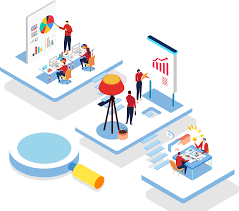
In the ever-evolving landscape of education, digital transformation has become a cornerstone for fostering innovation and retooling the learning experience. As educational institutions and organizations embrace a variety of technologies, they unlock new potentials for educators and students alike. This article will delve into how technology is reshaping learning and the ways in which these advancements can encourage innovation.
One of the most critical drivers of innovation through digital transformation is the accessibility to vast resources. Digital libraries, online databases, and educational platforms provide students with an unprecedented amount of information at their fingertips. This democratization of knowledge empowers learners from all socioeconomic backgrounds to explore subjects in-depth without being limited by physical boundaries or materials.
Interactive learning environments are another benefit brought forth by technology. Virtual and augmented reality experiences have made it possible for students to immerse themselves in historical events, visualize complex scientific concepts, or create art in 3D spaces. These environments stimulate engagement and curiosity which are vital components for fostering a culture of innovation.
Collaboration tools such as shared documents, instant messaging apps, and project management platforms enable both synchronous and asynchronous collaboration, breaking traditional classroom walls. Students working on group projects can share ideas, provide feedback, and contribute collectively towards common goals from anywhere in the world. Educators can also collaborate with peers globally to share strategies, resources, and insights.
Further enhancing personalized learning experiences, artificial intelligence (AI) facilitates adaptive learning platforms that adjust content according to a student’s progress. AI can identify gaps in knowledge, provide tailored resources to fill those gaps, or challenge students who are advancing quickly. Such personalized education encourages students to become self-directed learners, an essential trait for innovators.
Furthermore, data analytics drawn from these learning technologies offer deep insights into student performance and learning habits. Educators can leverage this data to customize teaching approaches, interventions or even predict future trends that can shape curriculum development reflecting real-world demands.
Lastly, preparing students for the modern workplace involves familiarizing them with digital tools they’ll encounter professionally. Incorporating coding courses, cloud computing workshops, or data science projects into curricula prepares students with practical skills while also spurring creative solutions within these fields.
In conclusion, digital transformation in learning not only provides extensive benefits but also encourages innovation through increased access to information, interactive environments, collaborative infrastructures, personalized experiences supported by AI, insightful data analytics – all of which align with demands of the 21st-century economy. Education systems that are adept at integrating technology will not only nourish innovative thinkers but also equip future leaders who are comfortable navigating digital landscapes that continue to shape our world.
